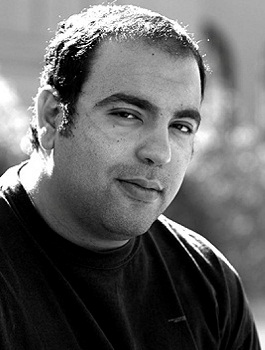By Ghassan Khatib
While examining the possible consequences of the reconciliation agreement between Fatah and Hamas, it is important to understand that Hamas is like any other political entity: it includes within its ranks different tendencies. These, in turn, can be developed or stunted, creating moderation or radicalization.
The recent history of Hamas has shown that its engagement with others — either Palestinians or internationals — has helped it in developing towards moderation. The recent reconciliation discussions appear to have contributed to improvements in Hamas’ positions; not only does the reconciliation agreement itself provide an example of this moderation, but the days since its signing have consolidated this conclusion. The fact that Hamas agreed to the formation of a government of politically independent personalities that will include neither Fatah nor Hamas members and will adhere to the PLO political platform is an example of that positive tendency.
This conclusion was confirmed by the short but clear statement by Hamas leader Khaled Meshaal during the reconciliation ceremony in Cairo. There he stated that Hamas’ objective is to establish a Palestinian state within the 1967 borders, with East Jerusalem as its capital. That is the exact objective that the PLO has been working to achieve, and is also an embracing of the international consensus.
In order to make sure that this message was heard clearly internationally, Meshaal followed that statement with three major interviews to international media outfits. The day after the reconciliation, Meshaal made a statement to AFP repeating his previous comments that Hamas’ objective is to end the Israeli occupation of the territories occupied in 1967, in order to allow for the establishment of an independent Palestinian state in that territory.
A day later, he gave an interview to the Wall Street Journal in which he was pressed to say something about the violent practices of Hamas. In this interview, he said that Hamas will now coordinate its activities to resist the occupation with Fatah and President Abbas. He also used the term “consensus” to describe the decision-making process with Fatah and Abbas.
Finally, and in an interview released by Reuters yesterday, Meshaal said that Hamas will not be willing to discuss or consider recognizing Israel as long as Israel is not willing to allow and recognize an independent Palestinian state in the borders of 1967. This is the clearest indication of the linkage in the minds of the Hamas leadership between their recognition of Israel and Israel’s recognition of an independent Palestinian state.
The past holds similar experiences vis-a-vis Hamas and dialogue. Talks among all the Palestinian factions sponsored by the Saudi government led to the Mecca agreement and a shared political platform. Looking at that agreement and the first ever unity government platform shows that Hamas moved far politically, when compared with its election platform just one year before. That government, which was headed by a Hamas member, affirmed its respect for the relevant resolutions of the United Nations, adhered to the Arab Peace Initiative, and accepted to abide by the previous commitments of the Palestinian government, including agreements with Israel.
By comparison, when that national unity government collapsed and all engagement with Hamas ended, the movement began to slide again towards rigidity and extremism. This reconciliation agreement with Hamas is a positive development and an indication of moderation. It should be supported in order to strengthen the moderates within the movement.
Ghassan Khatib is coeditor of the bitterlemons family of internet publications and director of the Government Media Center. This article represents his personal views. This commentary is published by DAILY NEWS EGYPT in collaboration with bitterlemons-international.org.

